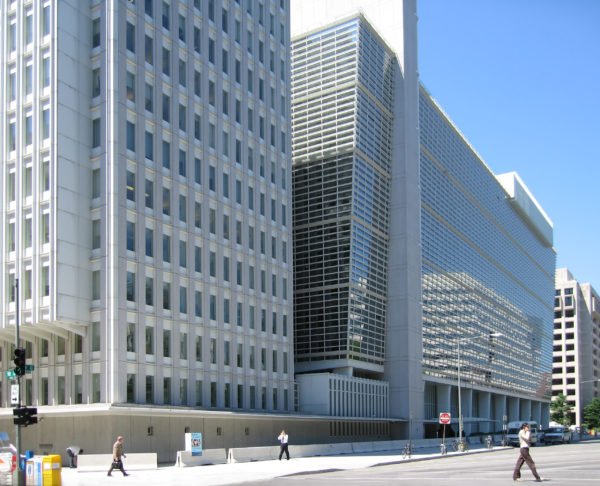Nigeria is not expected to benefit fiscally from higher oil prices fully in 2021 and 2022, the World Bank has announced.
In the bank’s Nigeria Development Update (NDU) themed: The Continuing Urgency of Business Unusual released yesterday, it explained that while oil prices rose by two-thirds against the backdrop of global economic recovery from COVID-19, net oil revenues in Nigeria increased by only four per cent, as production (including condensates) decreased from 1.83 million bpd in 2020 to 1.68 million bpd in 2021.
The bank said that the gap between oil prices and related revenues happened because the Nigerian National Petroleum Corporation (NNPC) deducted a significant portion of the Federation’s oil revenues to pay for the petrol subsidy.
The bank said that the cost of the petrol subsidy will increase significantly as higher global petrol prices will entail larger subsidy payouts if pump prices continue to be frozen.
It said the removal of the subsidy that the authorities had originally planned by mid- 2022 was postponed until 2023 or later, which is expected to generate considerable fiscal costs.
“The 2022 amended budget (yet to be adopted at the time of this publication) allocates N4 trillion (almost two per cent of Gross Domestic Product) for the petrol subsidy, higher than the combined budget allocated for education, health, and social protection,” it said.
The bank added that the worsening revenue collection at the federation level is increasing budgetary pressures for the states, and many states are in a precarious fiscal position.
“With net oil and gas revenues stagnating, most states will not be able to achieve their intended levels of expenditures in 2022. In addition, debt servicing expenditures at the state level are also mounting due to a decline in gross statutory account revenue transfers from the federation account allocation committee (FAAC), which comprises oil and non-value added tax (VAT), non-oil revenues,” it said.
The bank said the lower FAAC transfers in 2022 will not be compensated by the expected higher VAT collection or improvements in independently generated revenues (IGR).
According to the bank, the exchange rate policy in 2022 remains focused on maintaining an artificially stable official exchange rate through foreign exchange restrictions and administrative measures, thereby deterring inflows of capital, especially foreign direct investment.
“As highlighted in previous editions of the NDU, the CBN restricts the supply of FX to imports of over 40 products, some of which firms use as raw materials. As a result, despite the recovery in exports and economic activity in 2021, the CBN’s FX supply in the main market window—the investors and exporters (I&E) window— declined by 41 percent in 2021 relative to 2020,” it said.
According to the bank, while the prevailing rate at the I&E window (the Nigerian autonomous foreign exchange fixing rate, NAFEX) remained broadly stable in 2021, the parallel exchange rate depreciated by as much as 16 per cent in a context of FX scarcity.
“As a result, the premium between the parallel exchange rate and the NAFEX widened from 21 per cent to 37 per cent. Despite higher oil prices in 2022, FX shortages have not abated, hindering private investment,” it said.
The bank said that despite these challenges, the Nigerian economy grew faster than expected in 2021 and recouped the growth losses from the COVID-19 pandemic.
Following a contraction of 1.8 percent in 2020, the economy rebounded and grew by 3.6 per cent in 2021. This growth exceeded population growth for the first time since 2015. It was driven by base effects in most services and manufacturing and organic growth in agriculture, telecommunications, and financial services.
“However, despite high oil prices, oil output declined by 8.3 per cent and remained consistently below the country’s OPEC quotas (see Section 2.1). e consistent decline in oil production, which reached a two-decade low as of May 2022, stemmed from technical and security challenges in the oil-producing Niger Delta region, aging infrastructure and inadequate investment in the sector, and NNPC’s failure to pay for the Federation’s share of costs in joint- venture operations,” it said.



